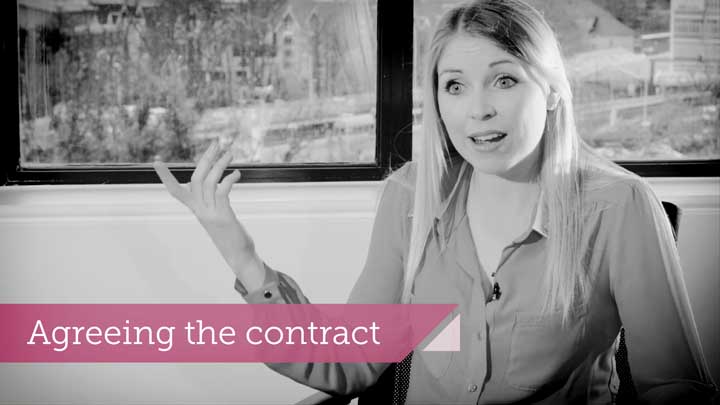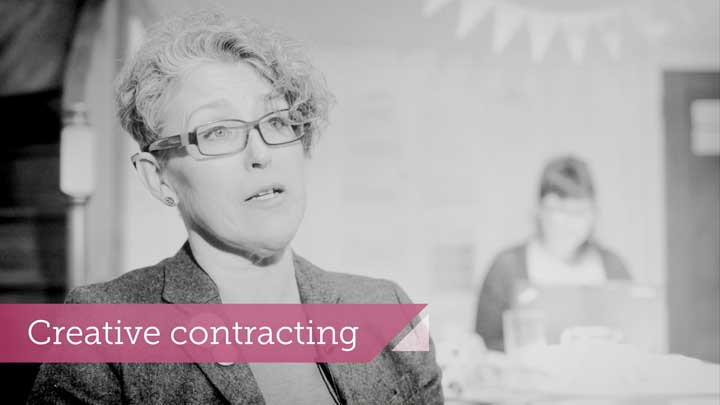Communicating about the contract
With most contracts or partnerships agreements that involve the process of reaching a formal agreement, you might be used to communicating regularly to work out the nuts and bolts of what you are committing to. In commissioning there will be an e-procurement process, which is efficient and transparent but doesn't allow for personal relationships. At each stage of the process commissioners should make it clear what communication is possible; when the specification is being finalised, during the bidding process, at interview and after the tender has been offered but before the contract is signed.
The targets in a commission specification might be very prescriptive and it’s important to understand the motivation behind these targets and the potential pressure on commissioners to deliver. Commissioners have a role to play in communicating the value of the output targets and how they relate to understanding and achieving the aims set out in the local strategy. It is important that providers and commissioners listen to each other and that communication is encouraged as much as capacity allows.
Commissioners will need to make sure they get market intelligence that would have come from a direct discussion or other avenues. Commissioners from outside the cultural sector will benefit significantly from having some additional expertise. Strategically this could be a Bridge organisation, local authority arts and culture department, or sometimes a leading cultural organisation or umbrella organisation could take that role.
An honest relationship

It is in everyone’s interest to develop the market, so an honest relationship is important from the beginning. Depending on how much communication has taken place already, the point at which you agree the contract is your chance to discuss the finer points of what you are agreeing to deliver. You should make sure you are clear on what the agreement is around Intellectual Property Rights, for example. You need to make sure that the administration resource in negotiating the final contract, and ensuring you meet the commissioners’ needs around monitoring and evaluation, are proportionate to the delivery of your project.
Over time, relationships will strengthen and trust will be gained. As these relationships develop commissioners will be able to free up organisations to deliver more independently, with the contracting being about outcomes and how those are evidenced.


